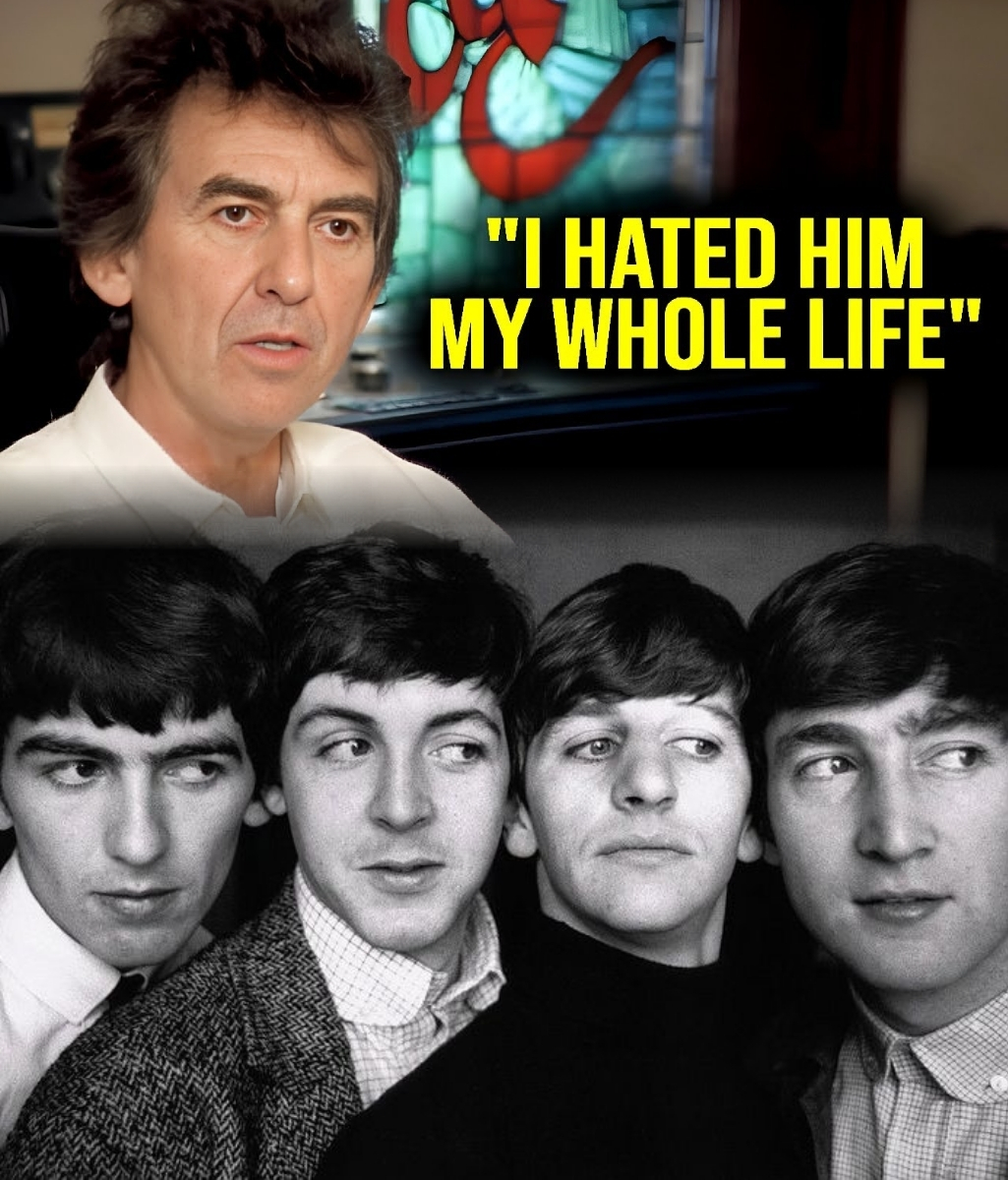
The Forgotten Voice in the World’s Biggest Band
When the world remembers The Beatles, it often begins with Lennon and McCartney — the dazzling partnership that defined an era. But behind them stood a young man from Liverpool, small in stature but fiercely determined, who carved out his place not with words, but with music. George Harrison was labeled “the quiet one,” a nickname that sounded harmless yet cut deep, reducing him to a background figure in a band where he longed to be heard. His silence wasn’t weakness; it was the mark of a man pushed aside, overshadowed, and yet quietly burning with creativity.
Born Into Fire and Hardship
George Harrison’s story began on February 25, 1943, in Liverpool, under the roar of German bombs. His parents, Harold and Louise, raised their children in a modest two-bedroom house, where hunger and hardship were daily struggles. George’s passion for music was so strong that his mother pawned her wedding ring so he could buy his first amplifier. By fourteen, his fingers bled from practicing guitar until midnight, yet he refused to stop. Music was not a hobby — it was survival, a way out of a world that offered little promise.
The Outsider Among Giants
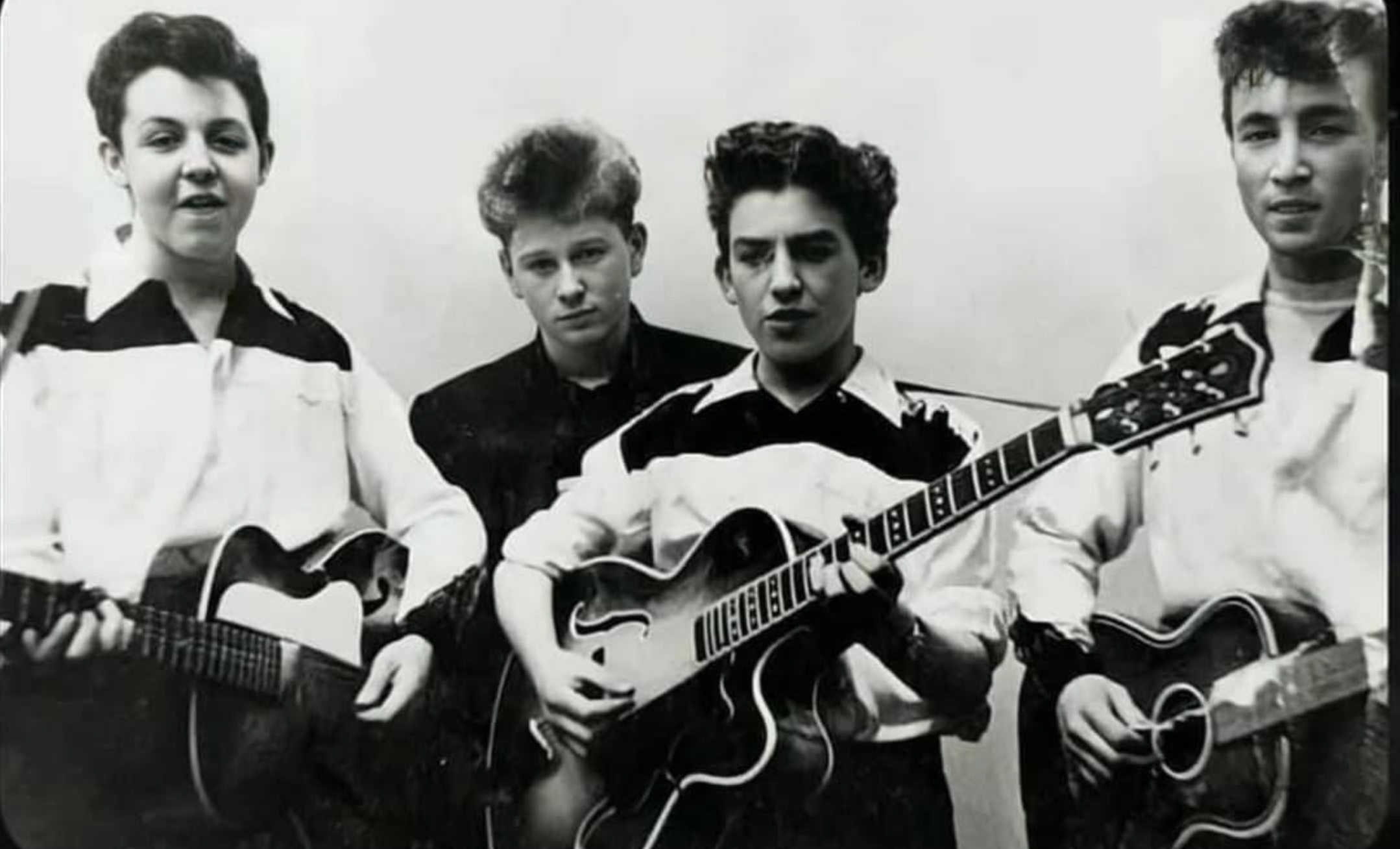
When George joined Lennon and McCartney in their early band, The Quarrymen, he was just a teenager. To John, he was the little brother tagging along. To Paul, he was a talented guitarist, but not yet an equal. And as the Beatles rose to fame, the unspoken rule was clear: John and Paul would write the songs; George could contribute one or two per album. It wasn’t for lack of ideas — by the mid-1960s, George had a stack of powerful compositions. But each rejection, each dismissive shrug, hardened his resentment.
The Breaking Point With Paul
The partnership with Paul McCartney grew particularly tense. Paul’s perfectionism in the studio left George feeling suffocated. Cameras famously captured their clash during the Let It Be sessions: Paul instructing, correcting, and dismissing George’s guitar parts until George finally snapped, muttering, “I’ll play whatever you want me to play, or I won’t play at all.” The sting of being constantly second-guessed would never truly heal.
The Hidden Songwriting Genius
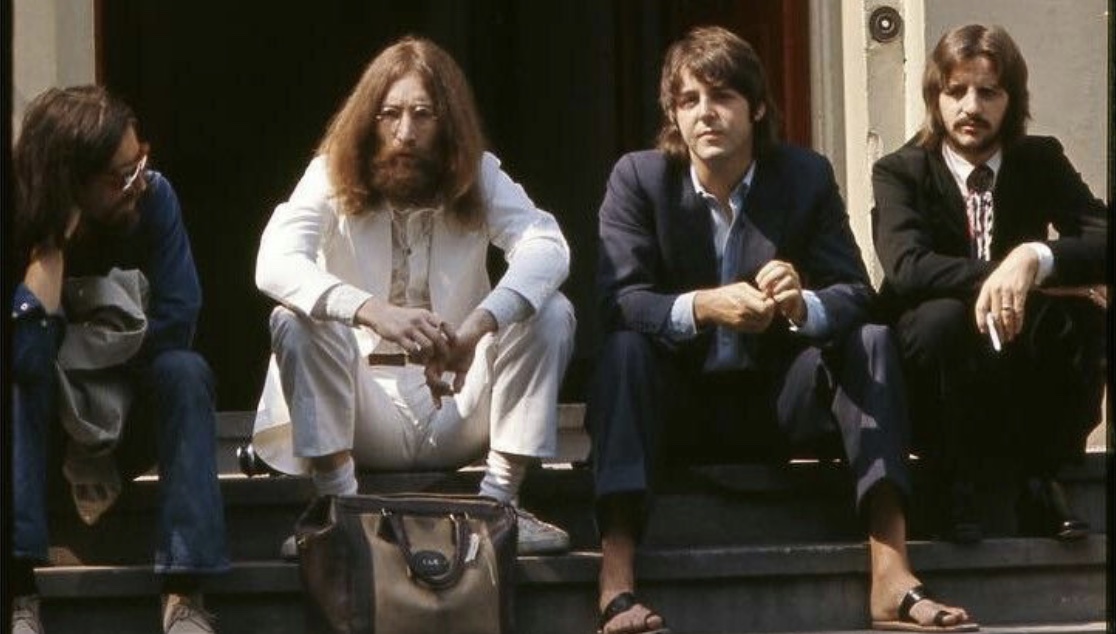
While Lennon and McCartney churned out hits, George wrote slowly, carefully, pouring his soul into each piece. His patience paid off. On Abbey Road (1969), he unveiled Something, a ballad so breathtaking that even Frank Sinatra called it “the greatest love song ever written.” For the first time, George’s work stood shoulder-to-shoulder with the band’s finest. The world finally saw what had been hidden in plain sight: a songwriter equal to Lennon and McCartney, though long denied the chance to prove it.
Betrayals and Contradictions
George’s personal life was far from peaceful. His marriage to Pattie Boyd crumbled under the weight of fame, affairs, and betrayal. His closest friend, Eric Clapton, fell in love with Pattie, writing the anguished Layla in her honor. At the same time, George shocked even his bandmates by confessing to an affair with Ringo Starr’s wife, Maureen. For a man who spoke so often of peace and spirituality, his private choices revealed a more complicated, wounded figure — one who preached detachment but wrestled with indulgence and desire.
The Solo Triumph
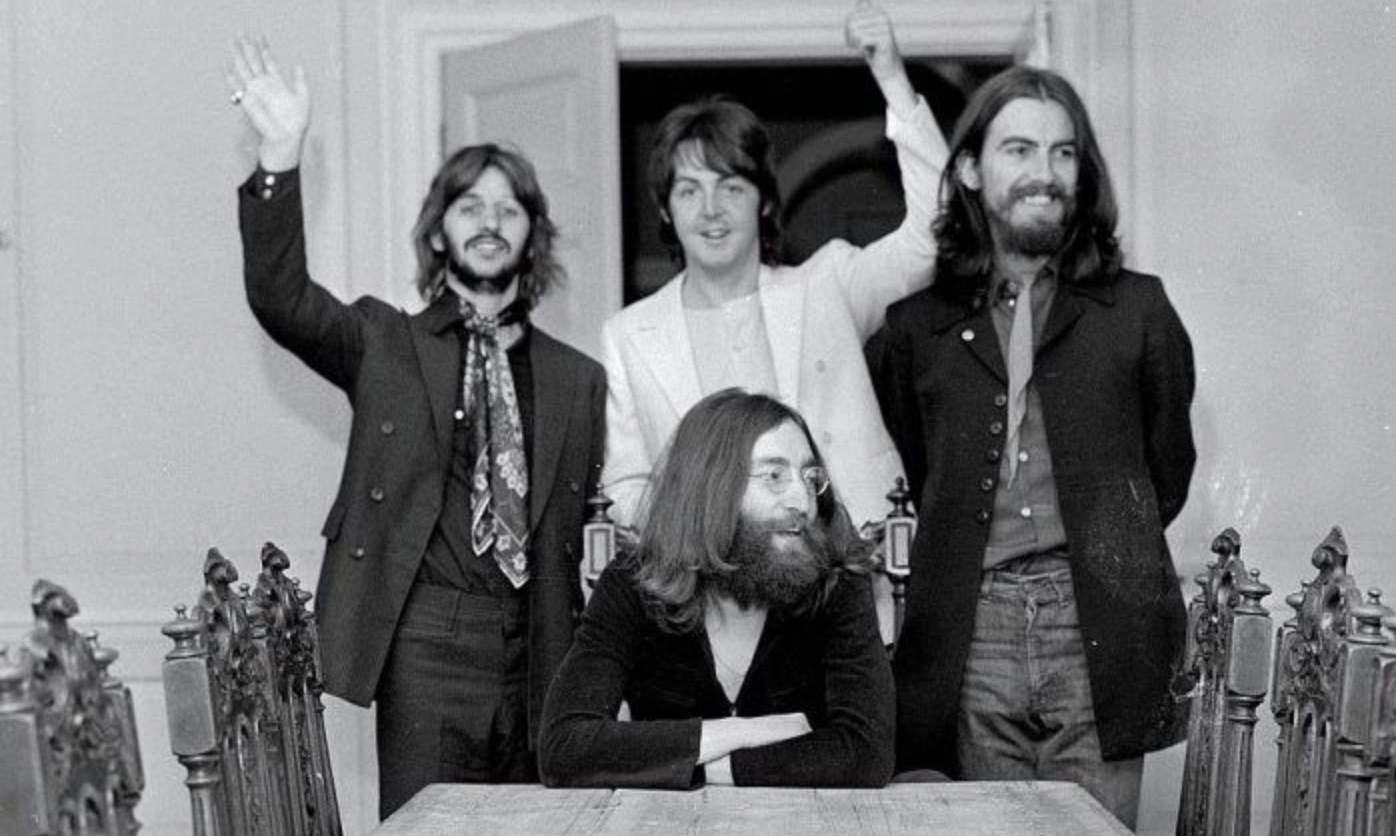
When The Beatles finally split, George seized his freedom with All Things Must Pass (1970), a triple album overflowing with songs his bandmates had ignored. My Sweet Lord, Isn’t It a Pity, and the title track became instant classics. The album outsold Lennon and McCartney’s solo debuts, proving that the “quiet Beatle” had been underestimated all along. His Concert for Bangladesh (1971) became the first great charity rock event, setting the stage for Live Aid years later.
Old Wounds That Never Healed
Despite his success, George’s bitterness lingered. He sided with John and Ringo against Paul during legal battles, even playing slide guitar on John’s scathing How Do You Sleep? — a direct attack on McCartney. Though the years softened some edges, George never fully forgave Paul’s dominance. With John, the regret was heavier. Lennon’s murder in 1980 robbed George of the chance to reconcile. The silence between them became one of his greatest sorrows.
Violence, Illness, and the Search for God
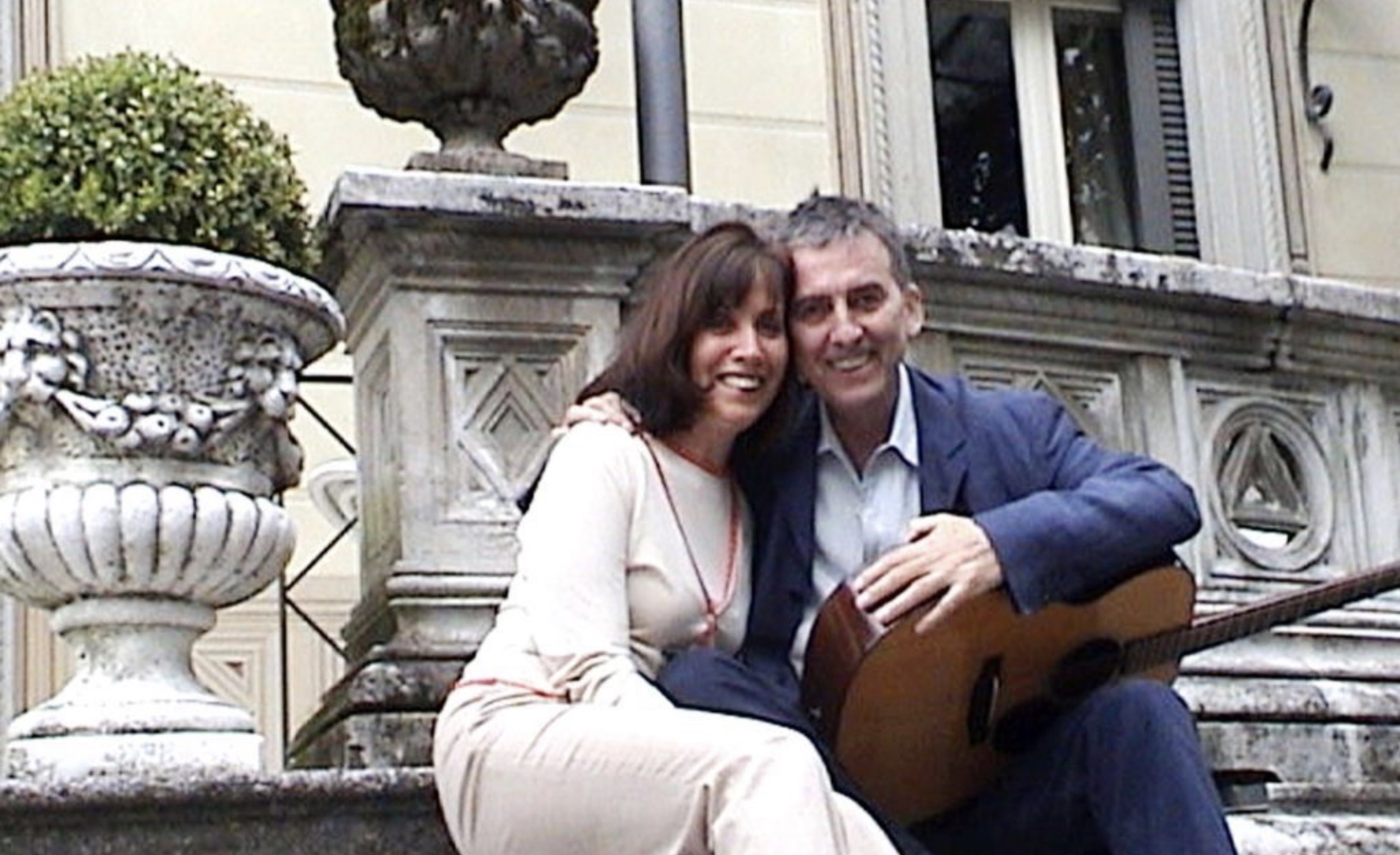
In 1999, George survived a brutal knife attack inside his own home, only to face another enemy: cancer. His years of smoking had taken a toll. As his body weakened, he turned more deeply to the Hare Krishna faith, surrounding himself with chanting, prayer, and family in his final days. His last words were simple but profound: “Everything else can wait, but the search for God cannot wait.”
The Final Legacy
George Harrison died on November 29, 2001, at just 58 years old. He left behind contradictions — a spiritual seeker who often stumbled, a peace advocate who carried anger, a quiet man whose music spoke louder than his words ever could. And yet, through those contradictions came greatness.
His story is not just of the Beatle overshadowed, but of the man who proved — in life, in love, and in song — that even the quietest voice can change the world.